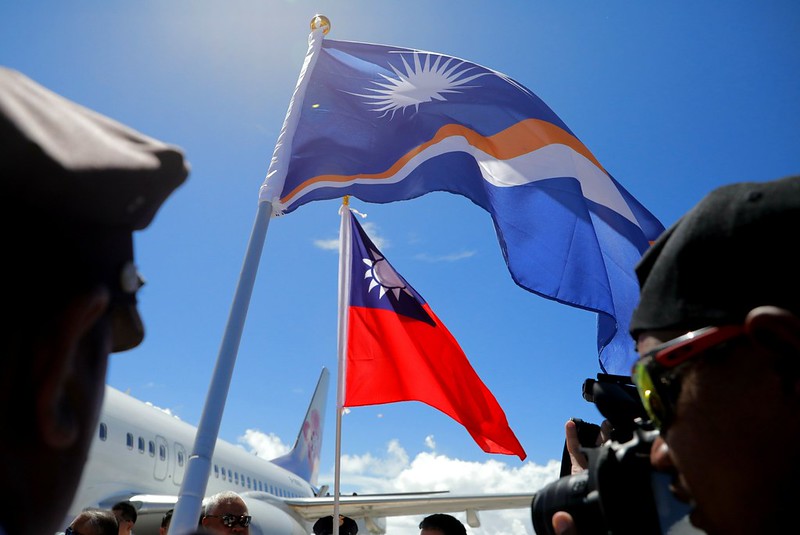What Happens When Taiwan Leaves the Pacific?

It should not be a stretch of imagination to envision a Pacific Island region minus the diplomatic recognition of Taiwan. This may not be a desirable outcome, but the current trend makes it entirely possible. For American foreign and defense policy in the Pacific, what impact would this have?
Currently, there are twelve countries that recognize Taiwan. Three Pacific Island countries recognize Taipei – Marshall Islands, Palau and Tuvalu. Two, Marshall Islands and Palau, are US allies. Tuvalu and Australia inked the Australia-Tuvalu Falepili Union, binding the two countries closer in human mobility, climate and security terms. Prospects for maintaining the agreement with Australia and keeping relations with Taiwan seem in doubt after Tuvalu’s election in which the pro-Taipei PM likely lost his seat.
It bears mentioning that flipping from Taiwan to the PRC need not be permanent. Nauru shifted recognition to the PRC in 2002 and back to Taipei in 2005. In 2003, Kiribati recognized Taiwan only to revert to the PRC in 2019.
The US has long benefited from Taipei’s presence among the Pacific Islands. Taipei’s presence has offered the US strategic denial on the cheap, underwriting US defense policy for decades. When a Pacific Island country recognizes Taiwan, it prevents Beijing from openly placing government assets within that country. Regionally, it also has benefited US foreign policy by reducing Beijing’s capacity to work with the Pacific Islands Forum (PIF) membership.
The way the change in recognition takes place raises concerns. The PRC can take advantage of underlying institutional challenges that have often gone unaddressed for far too long. And, when a change in recognition happens, it brings about not only a shift in diplomacy, but sometimes other unwanted change too. The case of Nauru is instructive. Nauru ended its recognition of Taiwan on January 15, 2024. Earlier, on November 14, 2023 Bendigo Bank and the government of Nauru announced that the bank would leave by the end of 2024. Bendigo Bank is the only bank in Nauru. When Bendigo bank leaves, Nauru will have no institution through which it can manage its funds. No checks can be cashed, no trust funds can be distributed to island recipients. Largely unnoticed by those outside the banking world, it was an explosive event.
It’s worth taking a moment to consider the status of banking across the Pacific. There are few banks operating among the Pacific Island countries. Most banks consider doing business in the islands as unprofitable. Costs associated with anti-money laundering and combating the financing of terrorism (AML/CFT) compliance make banking in places like the Pacific unattractive, given their small economies and customer bases.
Nauru needs a bank when Bendigo leaves.
Taipei also complained that the new government in Nauru secured 0 million annual enticement from the PRC. Presumably, they will need a bank to go along with those funds. A Chinese bank is sure to follow. The extension of PRC financial institutions will further erode the West’s structural position across the region. In this way, Nauru is the thin end of the wedge.
A Pacific Island region, without Taiwan, will complicate relations for the US. It will present Washington with challenges for which the US is currently unprepared. Banking is just one example of those complications. An essential step for Washington is to think deeply about how a Pacific without Taiwan will affect Washington’s engagement, and its broader strategic position.